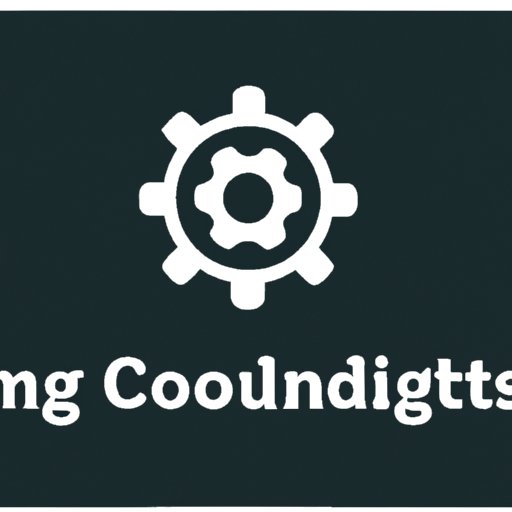Introduction
Computer science is an ever-growing field that is becoming increasingly important in our digital world. It has applications in many different industries, ranging from business to healthcare to entertainment. Getting started in computer science can be daunting, especially if you’re new to coding or programming. But with the right resources and guidance, anyone can learn the fundamentals of computer science and build a strong foundation for further study.
Understanding the Basics of Computer Science
Before diving into the specifics of coding and programming, it’s important to understand the basics of computer science. This includes understanding the principles of hardware, software, data structures, algorithms, and networks. Once you have a basic understanding of these concepts, you will have a better idea of what coding languages are best suited for your particular needs.

Setting Goals and Creating a Study Plan
Once you have a general understanding of computer science, you should set specific goals and create a study plan. Think about where you want to be in a year, two years, or five years. Do you want to become a software engineer? Or do you want to become a web developer? Knowing your end goal will help you focus your efforts and stay motivated.
Creating a study plan is also essential. Break down your goals into smaller, achievable milestones and set deadlines for each milestone. For example, if your goal is to become a software engineer, you might set a deadline of one month to learn the basics of HTML and CSS, two months to learn JavaScript, and so on. Having a timeline in place will help you stay focused and on track.
Learning Programming
Once you have a clear goal and a study plan, it’s time to start learning programming. The first step is to choose a language. Popular languages include Python, Java, C++, and JavaScript. Each language has its own advantages and disadvantages, so do some research to determine which language is best suited for your needs.

Taking Online Classes and Tutorials
The next step is to take online classes and tutorials. There are many free and paid resources available, such as Codecademy, Udacity, and Coursera. These courses will provide you with a detailed overview of the language you’ve chosen and teach you the basics of programming. Additionally, there are many online communities dedicated to helping beginners get started with coding.

Joining Local Coding Groups and Communities
Another great way to learn programming is to join local coding groups and communities. Many cities have coding clubs or hackathons where you can meet other coders and get feedback on your work. Joining a coding group will give you access to experienced coders who can provide guidance and answer any questions you may have.
Furthering Your Knowledge
Once you feel confident in your coding skills, there are many ways to further your knowledge. Attending conferences and workshops is a great way to learn about the latest developments in computer science and network with professionals in the field. Exploring open source projects is also a great way to gain experience and hone your coding skills. Finally, networking with professionals in the field is an excellent way to make connections and learn more about the industry.
Conclusion
Starting computer science from scratch can seem overwhelming, but with the right resources and guidance, anyone can learn the fundamentals of coding and programming. The key is to set specific goals and create a study plan. Then, choose a language and take online classes and tutorials. Joining local coding groups and communities is also a great way to get feedback and learn from experienced coders. Finally, attend conferences and workshops, explore open source projects, and network with professionals to further your knowledge.
By following these steps, anyone can become proficient in computer science and have the skills necessary to pursue a career in the field.
(Note: Is this article not meeting your expectations? Do you have knowledge or insights to share? Unlock new opportunities and expand your reach by joining our authors team. Click Registration to join us and share your expertise with our readers.)
